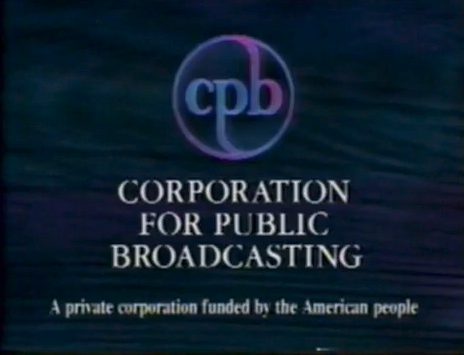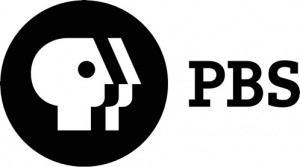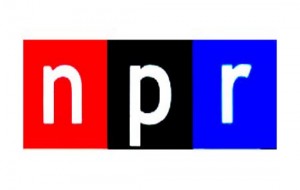The people behind a show on NPR
It wasn’t until I crossed the political Rubicon that I started appreciating the irony of the intro to so many PBS and NPR shows. Turn on Masterpiece Theater and a measured male voice announces, “This program is made possible in part by the Corporation for Public Broadcasting, a private corporation funded by the American people.”
In the normal world, a private corporation means that individuals voluntarily buy into it, and that the corporation is then responsive to these shareholders. In the loopy world of “public broadcasting,” however, the reality is that the government uses its coercive powers to force taxpayers to hand over money for speech (not for roads or weapons, but for speech, which ought to be free). Many of these coerced taxpayers have no interest in the corporate product, and even more of them find it reprehensible.
We who oppose the Corporation for Public Broadcasting are right to do so. For most of my life, PBS and NPR were the main news sources for me and my family. That’s why I can say with certainty that these publicly funded entities inculcated in us a world view that was anti-American, anti-military, anti-Republican, anti-Reagan, anti-Bush, and anti-Israel.
As I’ve told you before, I swallowed everything . . . except for the Israel part. Unlike all the other stuff, I actually had first hand knowledge about Israel, since my parents were part of its creation, our friends and family lived (and still live) there, and I’d traveled there for extended periods of time. Once I realized that public broadcasting was out-and-out lying about Israel, or taking a view so slanted that it was tantamount to a lie, I began to question everything that public broadcasting broadcast.
As far as I’m concerned, public broadcasting’s only virtue now is . . . . Oh, never mind. I can’t think of a single news, entertainment, or educational product it sells that isn’t overt or covert propaganda for a hard-Leftist world view. The exception might be Masterpiece Theater, but that exception only works for some productions and, in any event, I’d be just as happy to watch them on A&E.
If the Corporation for Public Broadcasting was a true private corporation, I wouldn’t have a problem with its world view, although I still wouldn’t like it. What’s reprehensible is that I’m forced to pay for this ostensibly private institution that produces a product with which I strongly disagree.
I may be forced to pay for public broadcasting, but I don’t have to watch it or listen to it. Part of me knows I should, because it’s very useful to know how and what the opposition is thinking. The problem, though, is my blood pressure goes shooting through the roof when I hear its little packages of information, all of which have a Leftist beginning, middle, and end, with no room for argument and dissenting opinions.
This rant is for a reason. On Facebook, many of my liberal friends swoon about a new-ish show on NPR called Snap Judgment. As best as I can tell, this oh-so-hip show consists of short “true tales,” told with jazz and hip-hop music threading through the stories. The stories run the gamut from silly to serious. I’m sure there is much there that is interesting or informative.
I find the show off-putting for two reasons, though. First, having listened to a bit of it, I find the choppy mix of music and narrative, which is modeled on “slam readings,” irritating rather than attractive. I also don’t like the fact that the show’s sensibility is Left. This slant really isn’t a surprise. Take a look at the bios for two of the show’s four producers (bolded emphasis mine):
Glynn Washington – Host & Executive Producer
Before creating the Snap Judgment radio show, Glynn worked as an educator, diplomat, community activist, actor, political strategist, fist-shaker, mountain-hollerer, and foot stomper.
Glynn composed music for the Kunst Stoff dance performances in San Francisco, rocked live spoken word poetry in Detroit, joined a band in Indonesia, wrote several screenplays, painted a daring series of self portraits, released a blues album, and thinks his stories are best served with cocktails.
Anna Sussman – Producer
Anna Sussman has been trying to report serious stories but really reporting on frivolity for the past nine years. She earned two masters degrees from the University of California at Berkeley, in Journalism and Human Rights, and founded Backpackjournalist.org with her husband, reporting stories on U.S military debacles, international war tribunals and man-eating crocodiles from 21 countries.
Anna comes to Snap Judgment from the wilds of the freelance jungle where she reported for CNN, Current TV, PRI and the San Francisco Chronicle. She also plays the banjo and can be spotted in a Thai sports drink commercial.
Both Washington and Sussman are probably very nice people, the kind who would, with their many and varied life experiences, be enjoyable conversationalists at a dinner party. Glynn Washington, especially, has an interesting bio, one that actually ought to have him questioning the merits of Leftist politics rather than, if his wife’s politics are anything to go by, embracing them:
Washington thinks about those things [life-altering decisions] because of the radical turns his life took when he was young. His family left the urban grit of Detroit in the early 1970s for life on a farm in rural Michigan. “We were organic before organic was cool,” Washington said. He was often the only African American kid in his classes. It meant he got beaten up a lot, but the move might have saved his life, because a lot of the kids he grew up with in Detroit, he said, are dead or locked up.
A few years after moving to the country, radio transformed his family. His mother fell under the spell of an on-air evangelist, and she dragged the entire household into a group he described as an apocalyptic cult.
Washington went his own way in his late teens. He studied in Japan, got a law degree at the University of Michigan and worked as a junior diplomat in Malaysia. Lately, he’s made his living by running a series of Bay Area nonprofits; he currently directs the Young Entrepreneurs program at UC Berkeley’s Haas School of Business.
Despite Washington’s and Sussman’s probable niceness, their bios (especially Sussman’s) give the game away about the show’s sensibility: These are Leftists who dislike the military, blame poverty on capitalism, and generally don’t think much of the American way of doing things.
Washington and Sussman, and all their cohorts, are more than entitled to their views. Indeed, I love living in a free marketplace of ideas. What I hate is being forced to pay for someone else’s ideas.
And yes, I know that public broadcasting is a miniscule part of the federal budget. That’s irrelevant. First, it’s still money and, in a broke economy, every penny counts. We should be sequester public broadcasting in its entirely, rather than imposing cuts on our military.
Second (and this is the really important one), it’s my money that’s funding these shows. I didn’t voluntarily hand my money to NPR. NPR took it from me, using the federal government as its weapon. If you’ve been mugged, you don’t care whether the thief took $10 or $100. What you care about is the fact that you’ve been robbed at gunpoint.




